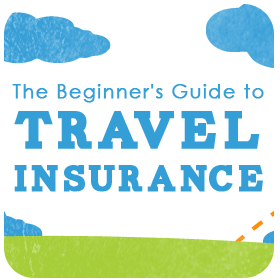 These are the travel insurance questions that every traveler asks.
These are the travel insurance questions that every traveler asks.
Travelers make assumptions about their coverage, or they completely misunderstand their coverage.
We have compiled a list of the questions most commonly asked by travelers looking for travel insurance.
Here they are:
1. Doesn’t my credit card have travel insurance?
No, not in the way most travelers want it to.
Credit cards that have ‘travel insurance’ provide little coverage, but nothing in comparison to a separate policy from a travel insurance company.
Some cards provide cancellation coverage, but with an annual limit ($1,500-$2,500 per 12 month period), and the list of covered reasons is limited. Interruption coverage is limited as well, as is travel delay coverage.
Most importantly though, is that almost no credit cards provide medical expense or evacuation coverage.
2. Won’t my regular health insurance cover me abroad?
Not completely. Most regular health insurance plans provide partial or no coverage while you are traveling in another country. For Medicare, there is never coverage abroad.
Countries with ‘universal health care’ might assist with minor needs, but they are under no obligation to do so. In the event of major or ongoing medical expenses, they would cease to help, and they would never pay to evacuate you or help you return home.
3. Will my cruise line refund me?
A little. It depends on when you cancel, but generally you won’t get much back.
Most cruise companies have a declining refund schedule where they refund less and less the closer to the departure date, until they refund nothing at all. Generally within 2 weeks there is zero refund, and even canceling a month before will usually only get you a 25% refund.
4. Are hurricanes covered?
Yes, many plans cover hurricanes and weather under trip cancellation coverage.
To be covered you need to 1) make sure it is listed as a covered reason, 2) buy before the storm is named, 3) insure for the full trip cost, and 4) some plans require that you buy soon after your trip payment to avoid the waiting period.
5. Are pre-existing conditions covered?
Yes, many plans offer a waiver that removes the pre-existing condition exclusion.
To be covered you need to 1) buy your plan soon after your first trip payment, 2) insure for the full trip cost, 3) be medically cleared for travel at the time of purchase.
6. What does travel insurance cost?
Insurance costs 4-8% of the trip cost (pre-paid, non-refundable expenses).
Basic plans can be very budget-minded at less than 4%, and premium vacation plans can be over 12%. Travel medical insurance is sold on a trip=length basis, and can be as little as dollars per day.
7. When should I purchase my plan?
Within days of making your initial trip deposit.
There are many benefits to purchasing the plan sooner, including maximizing the period of cancellation coverage, and being eligible for pre-existing condition coverage and hurricane coverage.
8. How do I know I can trust the company?
The companies featured by Squaremouth.com are companies that have years of experience with solid AM Best ratings of financial stability, and they comply with a Zero Complaint Policy.
9. What is the refund policy?
A 100% refund of premium within the Free Look Period is guaranteed by all companies. This allows travelers to review their policy and return it for any reason with the allowed time period (sometimes less a small administration fee $5-$8) as long as the traveler has not filed a claim or left on their trip.
10. How do I buy travel insurance?
Travel insurance can be quoted and purchased instantly online using a credit card.
Since travel insurance is a temporary insurance product, there is generally no underwriting period or medical examination required. You can get a quote online, buy with a credit card, print your email confirmation, and you’re all done.
Click here to get a quote and buy using a comparison website.
Next in the series:
Next in the Travel Insurance 101 series are the 4 Steps to Take After You Purchase, where you’ll see what happens after you get your plan, and how to make sure you have the coverage you need.
Go back to the Travel Insurance 101 series
